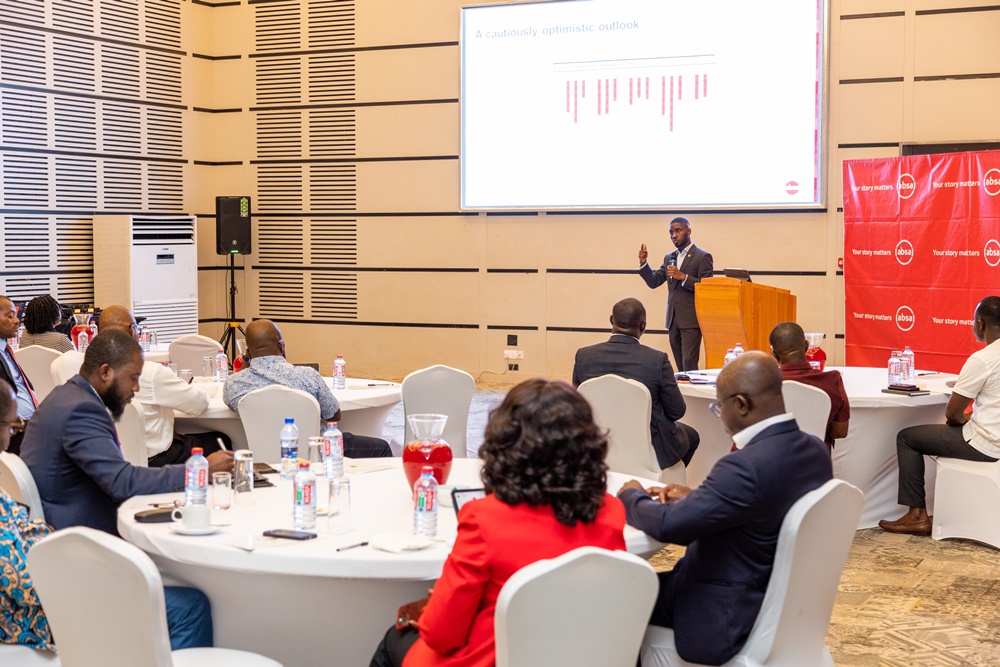
…mitigating potential pitfalls
Commercial Paper (CP) notes play a crucial role in the Ghanaian financial landscape, providing financial institutions and corporations with a flexible and efficient means to raise short-term funding for working capital purposes, payroll and other short-term needs. This short-term financing instrument with maturities ranging from a few days to several months – i.e., 15 to 270 days – has the potential to become an integral part of the corporate funding mix in Ghana. However, while commercial paper offers numerous advantages, including cost-effectiveness and improved liquidity management among others, it is not without risks.
In Ghana, like any other financial market, investors and businesses engaging in CP transactions face potential pitfalls that need careful consideration. One of the most significant risks is credit risk – whereby the issuer may fail to fulfil its payment obligations, leading to losses for the investor. Additionally, market liquidity risks can arise during periods of economic uncertainty; making it challenging to sell and recoup the CP investment at favourable prices.
In this article, we will delve deeper into these potential pitfalls and explore effective risk management strategies. By understanding and mitigating these risks, investors can confidently navigate the CP market and ensure stability and growth for their investments.
Understanding Commercial Paper Risks and Mitigations
Credit Risk
Credit risk is one of the primary concerns when investing in CPs. It refers to the risk that the issuer may default on its obligation to repay the principal and interest. To mitigate credit risk, investors must perform thorough credit risk assessments of potential issuers. This involves evaluating the issuer’s financial health, creditworthiness and repayment history. Additionally, diversifying investments across various issuers and industries can help reduce exposure to any single issuer’s credit risk.
Market Liquidity Risk
Market liquidity risk arises when there is a lack of buyers or sellers in the CP market, leading to difficulty in buying or selling the instrument at a fair price. During times of financial stress the market for CPs can become illiquid, making it challenging to sell the paper before maturity. To address this risk, investors should maintain sufficient liquidity in their portfolios to meet short-term obligations and avoid being forced to sell CPs at unfavourable prices.
Early Redemption Risks
Commercial paper can be redeemed by the issuer before its maturity date, causing reinvestment risk for the investor. This means the investor might need to reinvest their funds at potentially lower interest rates, affecting overall returns. To mitigate early redemption risks, investors can carefully consider the average maturity of CP they hold, diversify maturities, and anticipate the potential for early redemption when making investment decisions.
Risk Management Strategies
Due Diligence on Issuers
Before investing in any commercial paper, conduct thorough due diligence on the issuer. Understand their business model, industry position and financial performance. Review the issuer’s credit ratings from reputable rating agencies and assess their ability to meet financial obligations.
Diversification
Diversifying your investments across multiple issuers, industries and maturities helps reduce exposure to individual issuer risks or industry concentration risk, and enhances the overall stability of your portfolio.
Monitor Market Conditions
Stay informed about market conditions, economic indicators and changes in interest rates that may impact the CP market. Being aware of market trends enables you to make well-informed investment decisions.
Regulatory Compliance
Ensure compliance with relevant regulatory guidelines when dealing with CP investments. Stay up to date with CP market regulations and any changes that may affect your investments.
Liquidity Management
Although CPs are short-term instruments and seen as safer investment options, unexpected events can disrupt the short-term funding markets. Maintaining sufficient liquidity to cover any potential shortfalls ensures the ability to meet obligations.
Conclusion
Risk management is an indispensable aspect of engaging in CP transactions in Ghana. While CP offers lucrative opportunities for businesses and investors seeking short-term funding, it comes with inherent risks that must be carefully managed.
To successfully mitigate potential pitfalls, investors must conduct thorough due diligence on issuers, evaluating their creditworthiness, financial health and repayment history. Market-monitoring and staying informed about economic indicators and changes in interest rates are essential for making well-informed investment decisions. By being proactive and adaptable to market conditions, investors can navigate uncertainties and safeguard their investments.
As Ghana’s financial landscape continues to evolve, mastering risk management in CP investments becomes increasingly vital for sustainable growth and success. By adopting a well-rounded approach, investors can confidently navigate complexities of the CP market, ensuring resilience and prosperity in their financial endeavours.
The writer is an Analyst, Debt Capital Markets-Stanbic Bank Ghana
The post Risk Management in Commercial Paper appeared first on The Business & Financial Times.
Read Full Story


























Facebook
Twitter
Pinterest
Instagram
Google+
YouTube
LinkedIn
RSS